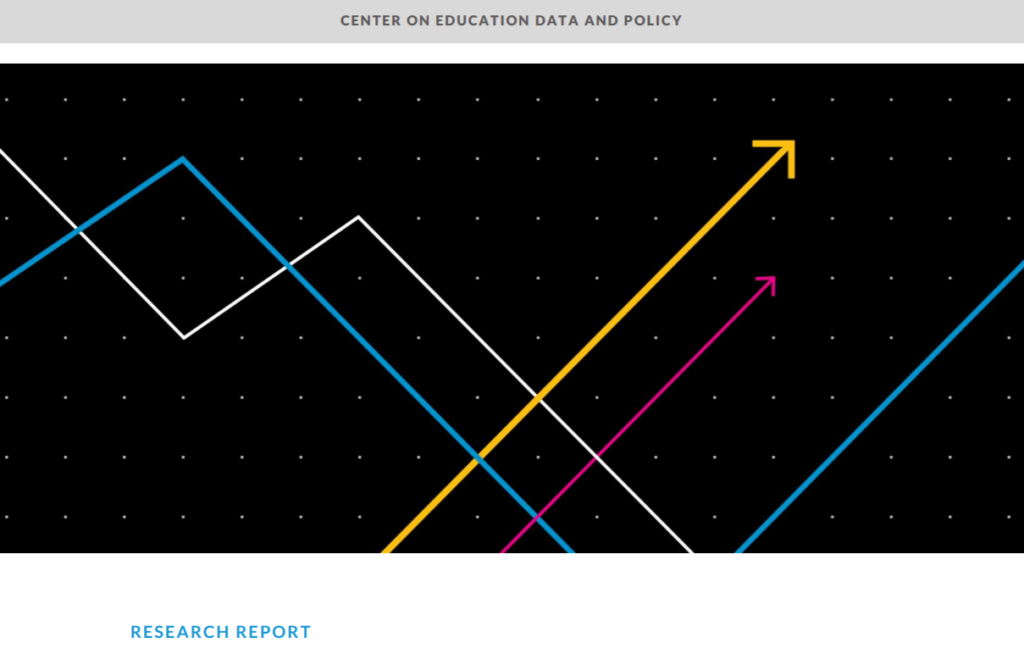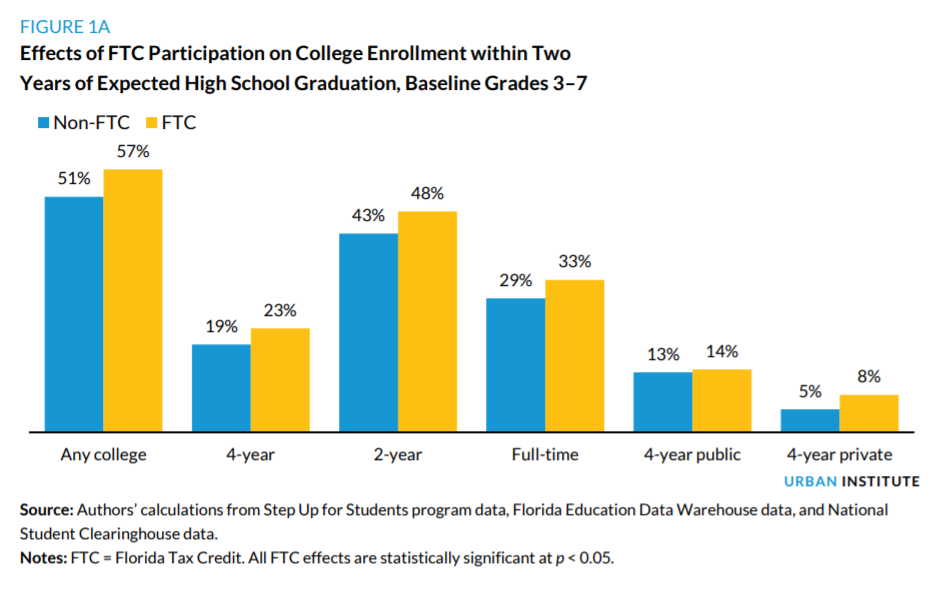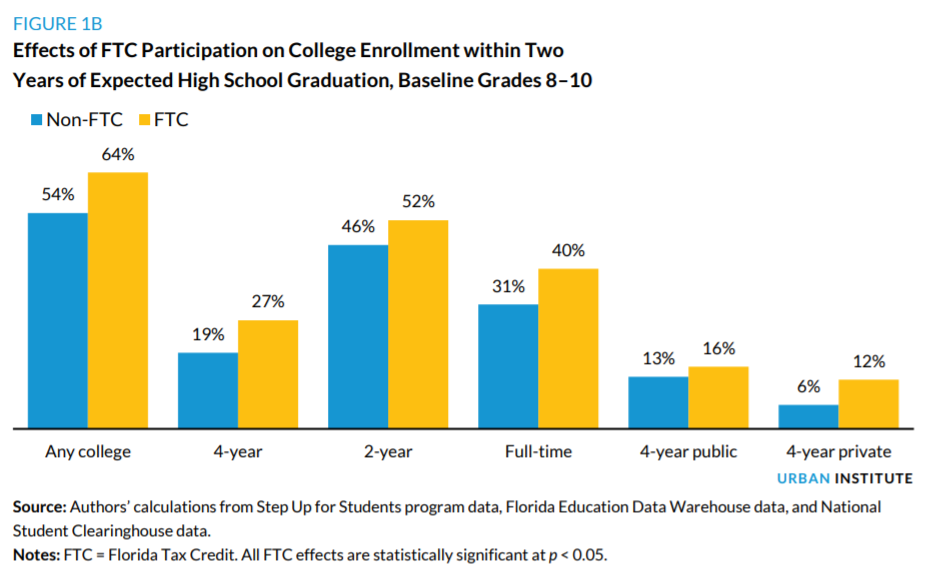 The Urban Institute has released a study of long-term outcomes associated with private choice program participation in Florida, Wisconsin and Washington, D.C., tracking college attendance and college completion rates for choice participants for the Florida Tax Credit Scholarship Program, the Milwaukee Parental Choice Program and the Washington, D.C., Opportunity Scholarship Program.
The Urban Institute has released a study of long-term outcomes associated with private choice program participation in Florida, Wisconsin and Washington, D.C., tracking college attendance and college completion rates for choice participants for the Florida Tax Credit Scholarship Program, the Milwaukee Parental Choice Program and the Washington, D.C., Opportunity Scholarship Program.
 Digging deeper: The results show clear advantages for choice students in Florida. Fifty-seven percent of Florida Tax Credit Scholarship students who started the program between third and seventh grades enrolled in college compared with 51 percent of matched non-Florida Tax Credit Scholarship students. Additionally, Florida Tax Credit Scholarship students had higher college-going rates in all sectors and were more likely to attend college full time. The Florida Tax Credit Scholarship Program’s impact on both enrollment and degree attainment grew with the number of years of program participation.
Digging deeper: The results show clear advantages for choice students in Florida. Fifty-seven percent of Florida Tax Credit Scholarship students who started the program between third and seventh grades enrolled in college compared with 51 percent of matched non-Florida Tax Credit Scholarship students. Additionally, Florida Tax Credit Scholarship students had higher college-going rates in all sectors and were more likely to attend college full time. The Florida Tax Credit Scholarship Program’s impact on both enrollment and degree attainment grew with the number of years of program participation.
 A similar pattern emerges in the data for students starting in the program between eighth and 10th grades. Sixty-four percent of Florida Tax Credit Scholarship students attended a college within two years of their expected graduation rate, while the rate for the comparison group was 54 percent.
A similar pattern emerges in the data for students starting in the program between eighth and 10th grades. Sixty-four percent of Florida Tax Credit Scholarship students attended a college within two years of their expected graduation rate, while the rate for the comparison group was 54 percent.
The study found positive results among scholarship program students in Wisconsin and neutral findings in Washington, D.C.
The big picture: The Urban Institute study results show better long-term student outcomes at a lower per-pupil cost in Florida and Wisconsin and equivalent long-term outcomes at a much lower per-pupil cost in Washington, D.C.
· The average Florida Tax Credit Scholarship amounts to 69 percent of the state’s average total per-pupil spending in the public school system.
· In Wisconsin, the MPCP average scholarship amounted to 67 percent of the average district per-pupil spending.
· In Washington, D.C., the average Opportunity Scholarship amounted to only 46 percent of the average per-pupil spending in District of Columbia Public Schools.
In Florida, Wisconsin and the District of Columbia, the Urban Institute analysis finds, respectively, better, better, and the same long-term outcomes.
The takeaway: Imagine the possibilities if the students in these programs received equal funding and enjoyed the flexibility of spending funds on enrichment activities such as tutoring and summer camps in addition to private school tuition.


